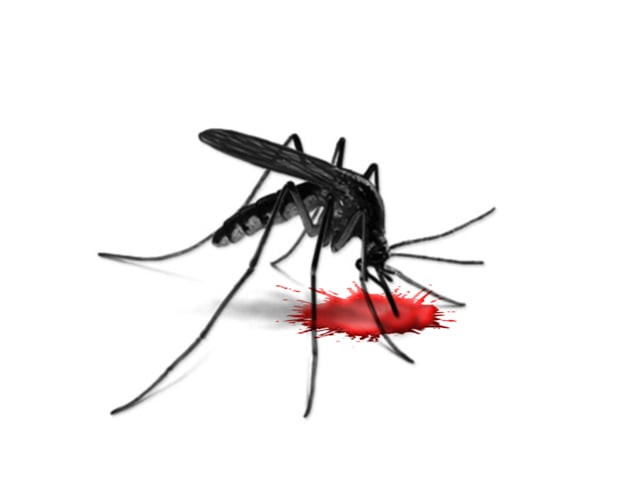Dengue virus: Cases expected to decrease in winter
So far, 3,508 dengue cases have been reported across the province this year.

Specialists at private hospitals said that a decline in the recent number of dengue patients has been encouraging. While the Aga Khan University Hospital (AKUH) had reported 359 cases (154 out-patients and 175 in-patients) in October, the numbers were drastically lower in November (from the first to the 22nd of the month) with 142 cases (76 in-patients and 66 out-patients).
“The moment the temperature falls below 22 degrees centigrade, the growth of the aedes aegypti mosquito will stop and soon after, the dengue season will end,” said Dr Tahir Shamsi, a consultant haematologist at the National Institute of Blood Diseases (NIBD).
According to Shamsi, the first week of November had raised concerns among the medical community as the numbers had continued to rise. However, the second half of the month has brought a “significant decline”, said Shamsi, who measured the decline by the use of mega platelets and the number of new cases registered.
“Over the last 24 hours, 34 new patients were admitted [to hospitals] across the province. This is in sharp contrast to the 120-plus patients being admitted [to hospitals] daily in previous months,” he said.
So far, 3,508 dengue fever cases have been reported across the province this year, 2,975 of which were reported in Karachi while the remaining 533 patients were from other parts of the province.
“While more cases were reported in the year 2010 than in 2006 — which was considered the worst year for the dengue virus — they were no more severe than the cases that were previously witnessed,” said AKUH infection committee chairperson Dr Bushra Jamil.
However, the rate of decline has been slower than expected, said the focal person for the Dengue Surveillance Cell, Dr Shakeel Aamir Mullick.
Meanwhile, EDO Karachi Dr Nasir Javed said that the breeding season for the aedes aegypti mosquito is during the monsoons and not during spring.
“If we look at cases from the year 2005, we see a trend regarding the breeding season, which mostly starts from July or August. This year, we saw a rise in cases in September as well,” he said.
Health secretary Hashim Zaidi agreed with Javed, saying, “All tropical countries face such issues whereas the aedes aegypti mosquito breeds and the virus spreads after the monsoons. Even with a decline in the number of cases, we will continue with our fumigation campaign.”
The spray used for the elimination of the aedes aegypti mosquito by the ministry of health is also used for malaria, which follows the spell of dengue cases.
Talking about the Rs100 million announced by Sindh Chief Minister Qaim Ali Shah, Zaidi said that the money has not been received by the ministry as yet but should come through within a few days.
“It will be used to buy cell separators and agitators for government hospitals which will be of great help in combating the virus the next time around,” he added.
Published in The Express Tribune, November 23rd, 2010.



















COMMENTS
Comments are moderated and generally will be posted if they are on-topic and not abusive.
For more information, please see our Comments FAQ